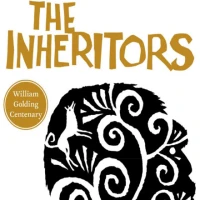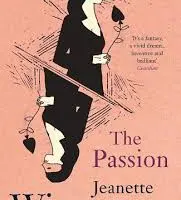Ashenden: Or the British Agent, by W. Somerset Maugham
Some books grow in memory, some diminish. I read Ashenden in chunks over a couple of months towards the back of 2016, and it’s fair to say that it’s one of the growers. Writing this now at the end of January 2017 I’m slightly puzzled that I didn’t include it in my end of year list.
Ashenden is an early piece of spy fiction based on Somerset Maugham’s own brief career as a spy in World War 1. The real author and the fictional character track pretty closely: both are recruited by a senior intelligence officer known as “R”; both are initially stationed in Switzerland; both are later sent on an urgent mission to Russia to help prevent the Russian revolution. Ashenden isn’t quite Maugham and this is fiction rather than autobiography, but at the same time Maugham lived what he writes.
I love these Vintage covers for Maugham.
Ashenden is half-way between novel and short story collection. Many of the stories here can be read by themselves (and I did just that). Several are paired so that the first sets up a situation and the second resolves it. Taken together they create a chronology of Ashenden’s career as a spy.
Ashenden himself is a dryly humorous sort; intelligent but emotionally distant. He’s well suited to his role. Here he’s just accepted the job from R:
The last words that R. said to him, with a casualness that made them impressive, were:
‘There’s just one thing I think you ought to know before you take on this job. And don’t forget it. If you do well you’ll get no thanks and if you get into trouble you’ll get no help. Does that suit you?’
‘Perfectly.’
‘Then I’ll wish you good afternoon.’
The stories vary in quality as you’d expect. Some are closer to being interesting anecdotes than anything more substantial. Others are very good and there’s a definite cumulative effect. Neutral Switzerland is crammed with spies, most aware of each other and all of them constantly scheming and trying to win each other over to their side. Maugham captures the sense of time and place marvellously:
At that time Geneva was a hot-bed of intrigue and its home was the hotel at which Ashenden was staying. There were Frenchmen there, Italians and Russians, Turks, Rumanians, Greeks and Egyptians. Some had fled their country, some doubtless represented it. There was a Bulgarian, an agent of Ashenden’s, whom for greater safety he had never even spoken to in Geneva; he was dining that night with two fellow-countrymen and in a day or so, if he was not killed in the interval, might have a very interesting communication to make. Then there was a little German prostitute, with china-blue eyes and a doll-like face, who made frequent journeys along the lake and up to Berne, and in the exercise of her profession got little titbits of information over which doubtless they pondered with deliberation in Berlin.
It’s easy at times amidst the black-tie dinners and hotel conversations for the reader to forget that there’s a war on, but Maugham never quite lets you do so and the real cost of Ashenden’s work is never too far away. More than once Ashenden lures enemy assets over the French border so that they can be captured by the British and shot. Sometimes he sympathises with those he manipulates, admires them even, but that doesn’t prevent him doing his duty and he doesn’t wash his hands of his responsibility for their deaths.
Clear victories and defeats happen, but they’re in the minority. Mostly it’s bland routine coupled with uncertainty as to whether he’s won, or lost, or made any difference to anything at all.
Ashenden’s official existence was as orderly and monotonous as a city clerk’s. He saw his spies at stated intervals and paid them their wages; when he could get hold of a new one he engaged him, gave him his instructions and sent him off to Germany; he waited for the information that came through and dispatched it; he went into France once a week to confer with his colleague over the frontier and to receive his orders from London; he visited the market-place on market-day to get any message the old butter-woman had brought him from the other side of the lake; he kept his eyes and ears open; and he wrote long reports which he was convinced no one read, till having inadvertently slipped a jest into one of them he received a sharp reproof for his levity.
The stories have a nicely judged dry sense of humour running through them. I particularly enjoyed this exchange with R which is possibly the most British thing I’ve read in years:
‘I’m expecting a fellow to come and see me to-night,’ he said at last. ‘His train gets in about ten.’ He gave his wrist-watch a glance. ‘He’s known as the Hairless Mexican.’
‘Why?’
‘Because he’s hairless and because he’s a Mexican.’
‘The explanation seems perfectly satisfactory,’ said Ashenden.
The Hairless Mexican is a paid killer that Ashenden has to guide to a target (it’s not all Swiss hotel conversations and rote administration). Like many of those Ashenden encounters he’s a larger than life sort. The Mexican boasts to R that he doesn’t know ‘the meaning of the word failure.’ R dryly replies that ‘It has a good many synonyms’. So it does, and Ashenden’s mix of competence and fallibility is part of what makes this so enjoyable.
There are the occasional odd notes. Fairly early on there’s a piece of descriptive text which has aged very badly (“A scudding rain, just turning into sleet, swept the deck in angry gusts, like a nagging woman who cannot leave a subject alone.”) Mercifully it’s something of a one-off and I mention it mainly so that if you do try this you’re not put off by it.
R also uses some very ugly racist language at one point, but it’s pretty clearly in character and the individual he’s speaking of (an Indian rebelling against British rule) is shown in the narrative to be sympathetic, intelligent and honourable. Again, I mention it only in case a reader might have an issue with it but racist attitudes in upper-middle class Englishmen of the early 20th Century are hardly surprising, particularly in a colonialist context.
I mentioned in my review of Far Eastern Tales that my grandfather, Jim, was a big Maugham fan. Reading this I can see why. Maugham really is very good. He’s absolutely in command of his material, and while his style is arguably a little old fashioned that’s only because he was writing between 70 and a 100 years ago. He deserves his reputation.
One last note. While I think the book itself has held up well to the passing of time, the Preface hasn’t aged quite so successfully. Maugham complains about the inadequacies of Modernist fiction (without using that term) for no particularly obvious reason and in passing criticises the Impressionists, commenting of them that “it is strange how empty their paintings look now”. As of today he looks comically wrong, but in another 90 years majority opinion may be with him again. Who knows? Prediction is hard, particularly about the future.
Other reviews
None that I know of, but I’d be delighted to be told of any in the comments.















Nice review Max. I spent time in the company of Ashenden back in 2013 and enjoyed myself very much. As you say, Maugham’s writing is excellent and I liked the fact that he didn’t sugar coat things. My thoughts are here, for what they’re worth:
Thanks Kaggsy, I’ll take a read. Good to know that someone else has taken a look at this and glad you liked it too.
Maugham is on my list… the vintage covers do lure a person in, too…
Maugham is one of my great favourites but I’ve yet to read this one.
I’ve not read much Maugham, but it’s hard to believe this isn’t good Maugham.
Here’s one other quote that I accidentally deleted from my draft and so didn’t consider for the final piece:
“She was immensely patriotic, but like many patriots she had an impression that her own aggrandisement tended to the good of her country.”
Hard to add much to that.
This morning I was thinking about Maugham and wondering if I should read one of the novels on my piles. I’ve mostly read his short fiction and one or two shorter novels. I was never disappointed. I see that a few elements haven’t aged so well . . . That won’t keep me from reading him, as you say, one has to think about the time when it was written.
I don’t have this one and wouldn’t pick it next, as I’ve still got to read On Human Bondage and The Razor’s Edge.
In any case, thanks for the nudge. We’ll see if it will be my next book. I’m also tempted to return to Greene.
On the dated elements, the nagging wife line really stands out and I don’t recall anything else like it. I mentioned it here only because it’s in something like the first story and if someone hadn’t read any Maugham before it might give the impression there was a lot more in that line to come, which mercifully there isn’t.
The racist stuff is in character and I suspect pretty accurate dialogue for the time.
In terms of writing, he’s very good. If you have others and not this there’s no reason to prioritise this, but I do think it’s worth giving him a go. Plus I’d like to see your thoughts.
Greene always merits revisiting. I should do the same myself. I used to be a big Greene fan.
Perfect quote, Max
I had no idea that he’d been a spy in WW1, albeit briefly – how fascinating! I’ve only read The Painted Veil, which I liked very much. This sounds as though it could be a good reintroduction to his work, and the dry humour certainly appeals.
I love these covers, too. Vintage do a good job in conveying the period feel when it comes to books like this. It’s the same with the artwork on their Richard Yates editions – they seem to capture the mood to perfection.
The patriotic one Guy? It is very good. Some things don’t change.
I do think you’d like this Jacqui, and it works well read alongside other books which is what I did. You read a story every now and then and they build up. I suspect that works better than trying to down it in one.
Vintage are very good with their covers.
Ah, Ashenden is great. Really liked the stories.
I’ve just by chance started Greene’s The Human Factor (speaking of quintessentially British spy lit).
I’ve always wanted to read this book – sounds like I should. And if I like it, there seems to be plenty of Maugham’s work in print.
I’ve read a lot of Greene (though weirdly not The End of the Affair nor The Power and the Glory), but not that one. Is it good?
Agreed on Ashenden.
Grant, it’s a good entry point, though the Far Eastern Tales collection I read a while back (there’s a review here) also works well and the stories there are entirely stand alone. Guy and Emma have both read some of the novels which I haven’t yet.
True
Finished it last night – yes, it’s good Max. It’s a bit far-fetched by Greene’s usual standards, and some of his obsessions (Catholicism in particular) point through at awkward angles. There are marvellous characters and moments though. Oddly, having read a lot of Le Carré over the years, it feels like a Le Carré knock-off.
Great review. I love his style and his sense of humour. This cover does him justice, it’s so Maugham.
PS: I loved the Maughams I’ve read. I’d like to read Of Human Bondage and The Razor’s Edge but their size is daughting. I wouldn’t want to read him in French and chunksters in English take a lot of time…
Hm, thanks Ian. I probably will read it but I have some more obvious Greene omissions first and much by him I want to revisit.
Emma, thanks, I really do think you’d like this one. Chunksters are offputting, I think I’ll be reading his slimmer volumes for a while yet, but I will be reading more by him.
Pingback: “No one has real names anymore,” | Pechorin's Journal
Just dropping back to say that I’m reading Ashenden at the mo and really enjoying it. Deliciously old school, isn’t it? I can just imagine A in his smoking jacket and slippers with a dry martini on the side. So interesting to see that you picked up on the ‘nagging woman’ line as it jarred with me too, particularly because it came quite early in the book. As you say, thankfully it appears to be a bit of a one-off in terms of tone.
Out of interest, how do any other Maughams you’ve read compare to this? Are the Eastern Tales in a similar style?
Old school is correct. Very much a dry martini sort of book. And yes, that line does jar.
The Eastern Tales are a bit richer in tone I’d say, more passion typically. Heat and desire and folly. Very good too though.
Nice to see you about Jacqui!